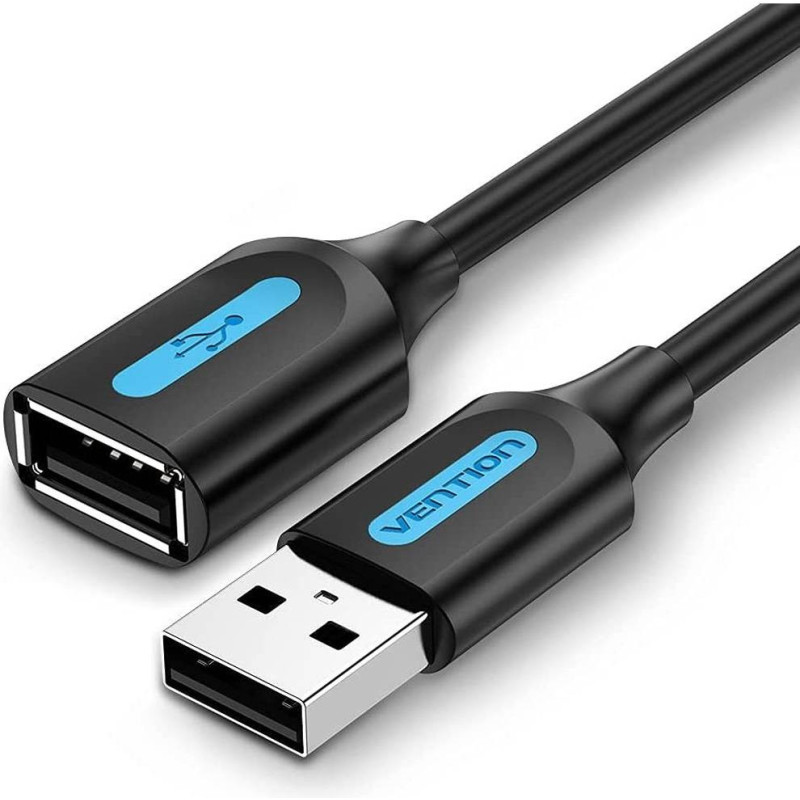



5-meter USB 2.0 extension cable with A male to A female connectors.
Supports data transfer speeds up to 480 Mbps.
Flexible and durable black PVC jacket.
Backward compatible with USB 1.1 devices.
Extends USB device access with plug-and-play convenience.
 Security policy
Security policy
(edit with the Customer Reassurance module)
 Delivery policy
Delivery policy
(edit with the Customer Reassurance module)
 Return policy
Return policy
(edit with the Customer Reassurance module)
Connector Type: USB Type-A male to USB Type-A female connectors allow extension of any existing USB connection, providing a longer reach from host device to peripheral.
Cable Length: Extended 5-meter (approx. 16.4 feet) length is ideal for situations where devices are placed far from the computer, such as classroom setups, media centers, office desks, or kiosks.
Data Transfer Speed: Compliant with USB 2.0 standards, delivering high-speed data transmission up to 480 Mbps—suitable for USB flash drives, printers, cameras, keyboards, and other peripherals.
Cable Construction: High-quality copper core ensures stable data transmission with minimal signal loss. Multiple shielding layers reduce EMI (electromagnetic interference) and RFI (radio frequency interference).
Durability: Encased in a tough black PVC outer jacket, the cable is resistant to bending, physical wear, and external stress, maintaining reliable performance over time.
Compatibility: Fully compatible with USB 2.0 and USB 1.1 devices, and supports USB 3.0 devices operating at USB 2.0 speeds.
Plug-and-Play: No external drivers or software needed—simply plug the male connector into your host device and the female end into the peripheral or USB cable to instantly extend connectivity.
Use Cases: Perfect for extending USB ports on desktops or wall-mounted PCs, connecting devices that are out of immediate reach, or improving workspace ergonomics.
Design Elements: Features molded connectors with built-in strain relief to prevent cable fatigue and damage, ensuring durability and a secure connection.
Performance Note: For best results with longer cables, use with self-powered USB devices or ensure the host port can provide sufficient power, as USB 2.0 does not include signal boosting over longer distances.